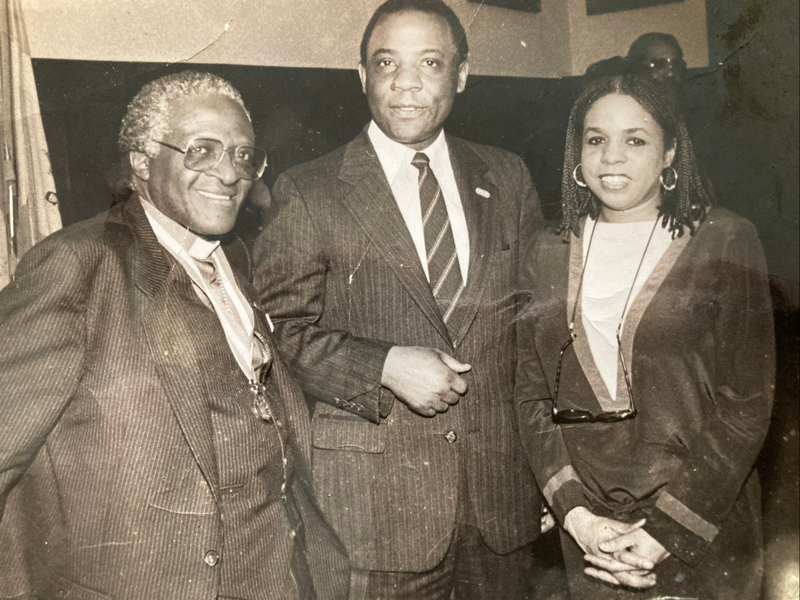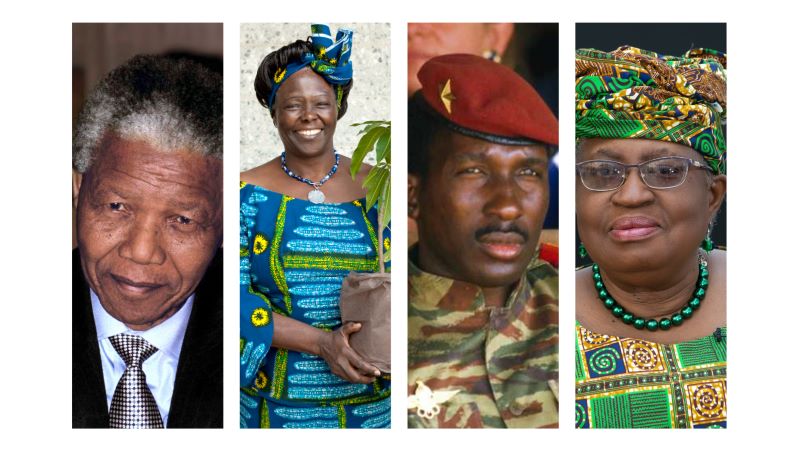Anglican theologian and human rights activist Desmond Mpilo Tutu, revered for his tireless fight against South African apartheid, has died in Capetown, South Africa at the age of 90. Often referred to as South Africa’s “moral compass”, he was Bishop of Johannesburg, Archbishop of Cape Town, and after the dismantling of South Africa’s racist apartheid regime, he was named Chairman of the Truth and Reconciliation Commission. The Commission was charged with soliciting testimony regarding atrocities committed during apartheid, but also providing legal amnesty from prosecution for those coming forward.
In 1984, Bishop Tutu was awarded the Nobel Peace Prize for his advocacy for a non-violent striking down of apartheid. Throughout the 1980s he traveled the world speaking out against minority-rule apartheid. In 1986, he visited Philadelphia, where was given an honorary degree at Temple University and delivered an anti-apartheid speech at the University of Pennsylvania. He also met with local leaders including Congressman Bill Gray and Philadelphia’s Mayor W. Wilson Goode.
The anti-apartheid message was already resonating in Philadelphia before the arrival of Bishop Tutu because of the efforts of on-the-ground activists such as South African-born, Godfrey Sithole, and longtime educator and anti-apartheid organizer, Catherine Blunt. Sithole had joined the African National Congress before coming to the US and relocating to the Philadelphia area, where he co-founded the Coalition for Free a South Africa and Namibia.
Nine months after Bishop Tutu’s Philadelphia visit, Congress passed the Comprehensive Anti-Apartheid Act sponsored by Congressman Gray. The legislation imposed economic sanctions against South Africa as a way to help end apartheid.
Post-apartheid, Archbishop Tutu remained an outspoken activist. He supported LGBT rights and the need to combat the HIV/AIDS pandemic. In 2002, he gave a widely publicized speech denouncing Israeli policy regarding Palestinians and called for sanctions against Israel.
Tutu officially retired from public life in 2010, but maintained an interest in social issues and continued to comment on international affairs. In response to Tutu’s death, President Barack Obama called Archbishop Tutu a universal spirit, “grounded in the struggle for liberation and justice in his country, but also concerned with injustice everywhere.”
###
“I am not interested in picking up crumbs of
compassion thrown from the table of someone
who considers himself my master. I want the
full menu of rights.”
Desmond Tutu

Karen Warrington has had a decades long career as a broadcast journalist, communications professional, performing artist, and documentary filmmaker. She has traveled extensively throughout Africa, the Caribbean, Europe, and Asia. She is committed to being a voice for the African Diaspora.





